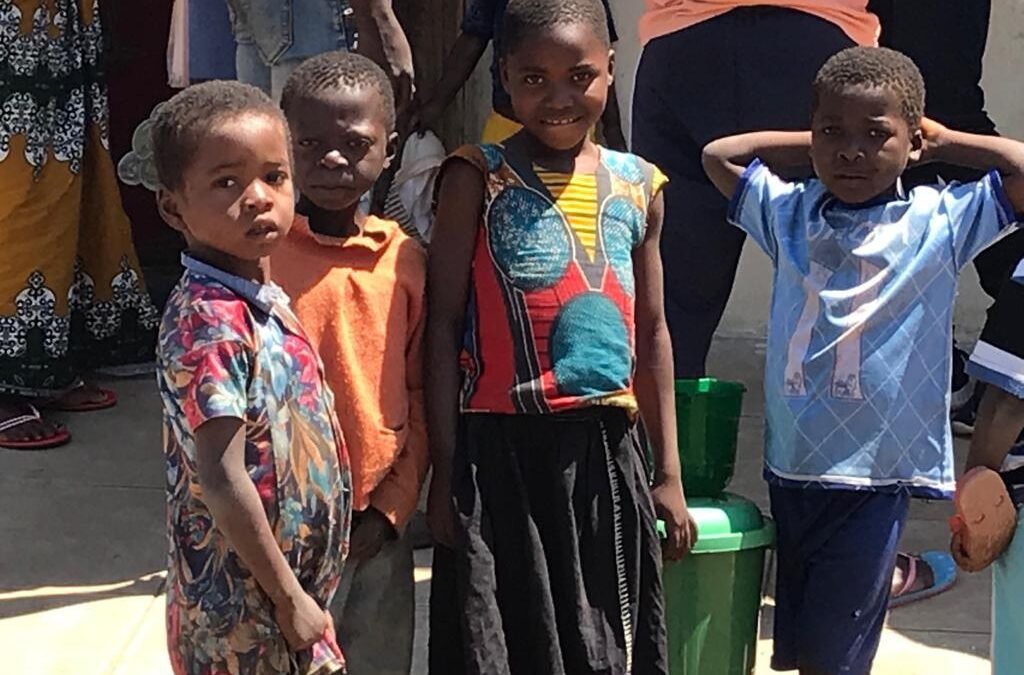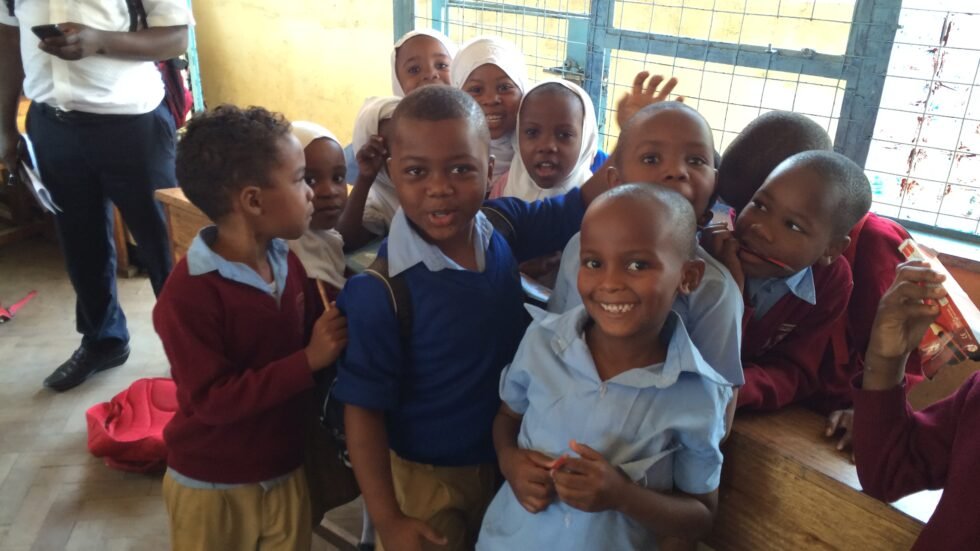The Resources Nook
Discover valuable insights into early childhood data and measurement with our collection of blogs, reports, presentations, articles, and briefs curated by ECD Measure and our esteemed partners.
BEQI: Evidence for Subscales
Using a dataset of more than 800 observations of early childhood settings conducted by trained observers, we assessed the evidence for the modules we use to summarize BEQI results. We were interested in determining whether proposed underlying constructs of play-based learning, learning through conversations, and promoting strong relationships were supported by the data.
Quality and inequality in pre-primary and home environment inputs to early childhood development in Egypt
This paper examines how pre-primary quality, stimulation at home, and early childhood development vary by socioeconomic status for pre-primary students in Egypt. The results demonstrate substantial socioeconomic inequality in stimulation at home, more so than in pre-primary quality and inputs, although there is variation in the degree of inequality across different dimensions of pre-primary quality.
Quality in Public & Private Early Childhood Care and Education Settings in Sub-Saharan Africa
Presentation on quality in public and private early childhood care and education settings, including responses to: What are characteristics of children attending public vs. private ECCE? How do teacher qualifications vary by private and public settings? How is parent cost associated with observed quality? Do families get what they pay for?
Learning Through Play: Insights from Measuring Early Learning Quality & Outcomes (MELQO)
We’re increasingly recognizing the power of play for children. Children learn best when they are supported to deeply engage with their surroundings and other people, when they are given the opportunity to explore and try things out, and when they can internalize and make meaning of what they are learning.
Collecting data to inform the scaling up of ECE in Mozambique
Mozambique is at a critical moment for early childhood education (ECE). Following the large-scale pilot of a community-based ECE program (known by its Portuguese acronym DICIPE- Desenvolvimento Integral da Criança em Idade Pré-Escolar), the country is now planning for the future scale-up of ECE interventions. A series of three separate evaluations of the pilot—a Process Evaluation, an Impact Evaluation, and a Costing Exercise—are in progress to help improve program quality and inform the scaling up of services.
Exploring Scales of Quality in Early Childhood Environments
In recent years, more and more children worldwide have access to pre-primary education. As access expands, it’s important to keep our attention focused on quality – the elements of the learning environment that determine children’s experiences in early childhood education. Quality can be viewed from a child’s viewpoint – what she gets to do during the day; how she feels about her teachers and friends; and whether she has opportunities to stretch and grow while receiving help when she needs it.
Teachers, Partnership, and Data in Lesotho: How Do Early Childhood Stakeholders in Lesotho and Tanzania Define “Quality” in Pre-primary Programs
The ECD Measure team, in partnership with in-country consultants, recently completed a project to explore how early childhood stakeholders in Lesotho and Tanzania define quality pre-primary programs.
Measuring Quality of Pre-primary Education in Sub-Saharan Africa: Evaluation of the Measuring Early Learning Environments Scale
Measurement of quality in early childhood education (ECE) helps shape policy and practice, yet few studies have examined the adaptation and resulting psychometric properties of ECE quality measures when used in low- and middle-income countries. This study reports on the adaptation of the Measure of Early Learning Environments scale (MELE-A), developed as part of the Measuring Early Learning Quality & Outcomes (MELQO) Initiative, in one sub-Saharan African country.
Educação Infantil em Boa Vista
Results from early childhood study in Boa Vista, Brazil (in Portuguese).
Global Patterns & Local Influence: Deciphering Quality in Pre-Primary
Presentation on MELQO addressing the following questions: Describing Environments: What’s it like to be in pre-primary in various countries? Universal vs. Local: How do children’s developmental trajectories vary or look the same in various parts of the world?
The Measuring Early Learning Quality & Outcomes initiative: purpose, process and results
Describes the process of creating the MELQO tools, summarizes results from psychometric evaluation, and provides examples of how the data have been used to reveal patterns of inequity and levels of learning and classroom quality.
SFSU Presentation: Measuring Early Learning Quality and Outcomes (MELQO) Project
Presentation on MELQO results.
Tanzania Pre-primary Teacher Workforce
Presentation from CIES on Tanzanian pre-primary teachers, using MELQO data.
Measuring Early Learning Quality and Outcomes in Tanzania
Assessment on current policies, curricula, standards, and monitoring and evaluation systems for pre-primary education in Tanzania to inform the MELQO process. The Measuring Early Learning Quality and Outcomes (MELQO) initiative aims to improve early childhood education worldwide through measurement of children’s development and learning and the quality of learning environments. Led by UNESCO, UNICEF, the World Bank, and the Center for Universal Education at the Brookings Institution, MELQO comprises an international consortium of individuals and institutions working to improve outcomes for young children by making early learning assessment more accessible around the world. MELQO’s measurement modules pro- pose a core set of items with relevance across coun- tries, with the goal of devising items that are glob- ally comparable but locally adaptable.
Understanding pre-primary quality in Tanzania: Data from the MELQO study
Report on the quality of pre-primary education environments in both Mainland Tanzania and Zanzibar, as found through the national MELQO study conducted in early 2017, and how this may inform sector improvement.
Measuring and predicting process quality in Ghanaian pre-primary classrooms using the Teacher Instructional Practices and Processes System (TIPPS)
This study assesses the factor structure and concurrent validity of an observational classroom quality tool to assess teacher-child interactions—the Teacher Instructional Practices and Processes System (TIPPS). There has been an increase in the demand for and supply of early childhood education (ECE) in low- and middle-income countries. There is also growing awareness that unless ECE is of high quality, children may attend school but not learn. Efforts to expand access to high quality ECE in low- and middle-income countries will require measurement efforts that are theoretically-grounded and culturally-adapted.
National Early Childhood Care and Education Quality Monitoring Systems
This brief describes current country practices related to setting standards and monitoring the quality of early childhood care and education (ECCE) learning environments.
Early learning in Ethiopia: equitable access and learning
Cambridge and REAL's Early Learning Partnership Ethiopia System Diagnostic Report, including MELQO results.
Getting data in early childhood education: Lessons from the MELQO experience
This brief outlines lessons learned on the process of generating, analyzing, and applying data to programs and policies in low- and middle-income countries.
Measuring Early Learning Quality and Outcomes Overview Report
Beginning in 2014 and led by UNESCO, UNICEF, Brookings Institution and World Bank, the Measuring Early Learning Quality and Outcomes project (MELQO) brought together a consortium of experts, multi-lateral organizations and stakeholders to assess the feasibility of cross-national measurement of early childhood development and quality of learning environments in low-and middle-income countries. This project is now completed. A report on the feasibility of cross-national measurement of early childhood development and quality of learning environments in low-and middle-income countries.





















